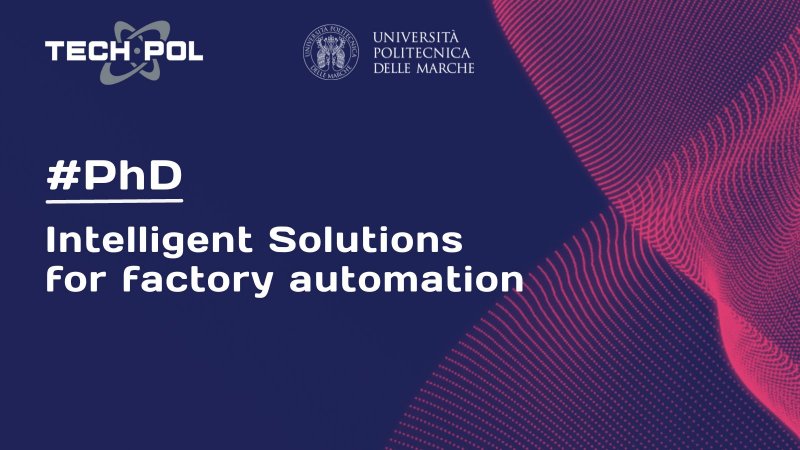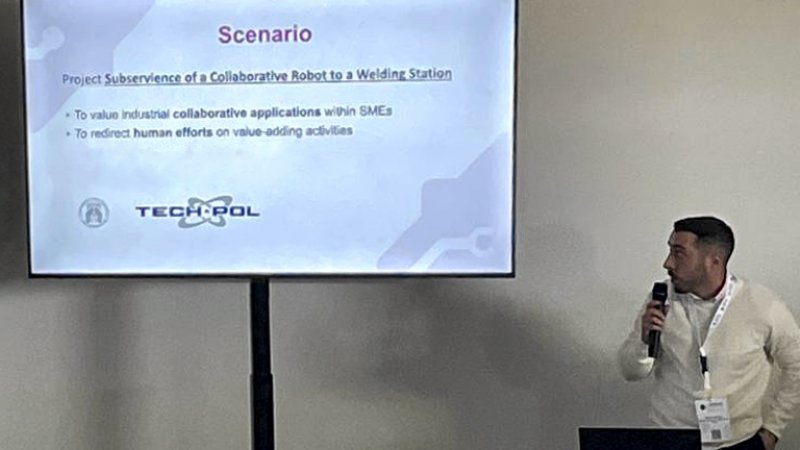
Techpol's commitment to innovation is confirmed through the collaboration with the Polytechnic University of Marche on a doctoral scholarship aimed at studying intelligent solutions for factory automation.
As part of the National Recovery and Resilience Plan, in reference to Investment 3.3 "Introduction of innovative doctorates that respond to the innovation needs of companies and promote the hiring of researchers by companies", the company has established a fruitful collaboration with the Department of Industrial Engineering and Mathematical Sciences of the Faculty of Engineering of UnivPM, co-financing a student’s research in Industrial Engineering for three years.
The aim of the research is to introduce collaborative robotics and Industry 4.0 paradigms within small and medium-sized manufacturing industries. The widely recognized main concept behind collaborative robotics revolves around human-centered automated processes that allow operators to interact with the robot's workspace with an acceptable degree of risk, leading to a more efficient and safer working environment, reducing the use of human labor and instead exploiting their unparalleled cognitive abilities.
With great satisfaction, the project was presented on the occasion of the Fifth Conference on Robotics and Intelligent Machines promoted by I-RIM (Institute of Robotics and Intelligent Machines) where the Italian community of the sector gathers together with international guests and speakers. Our researcher, Mirco Polonara, presented the welding station project and illustrated the advantages that the integration of collaborative robotics can have in small and medium-sized companies like Techpol.
Over the next few years, the Innovative Doctorate co-sponsored by Techpol will have the task of investigating the actual benefits of the introduction of mobile collaborative robots, i.e. capable of moving autonomously within the industrial plant to intervene in the production islands where it is requested their service. The challenges that this research brings with it will have to be addressed by leveraging the most modern factory automation technologies, such as artificial intelligence, computer vision and high-level programming of complex tasks.

